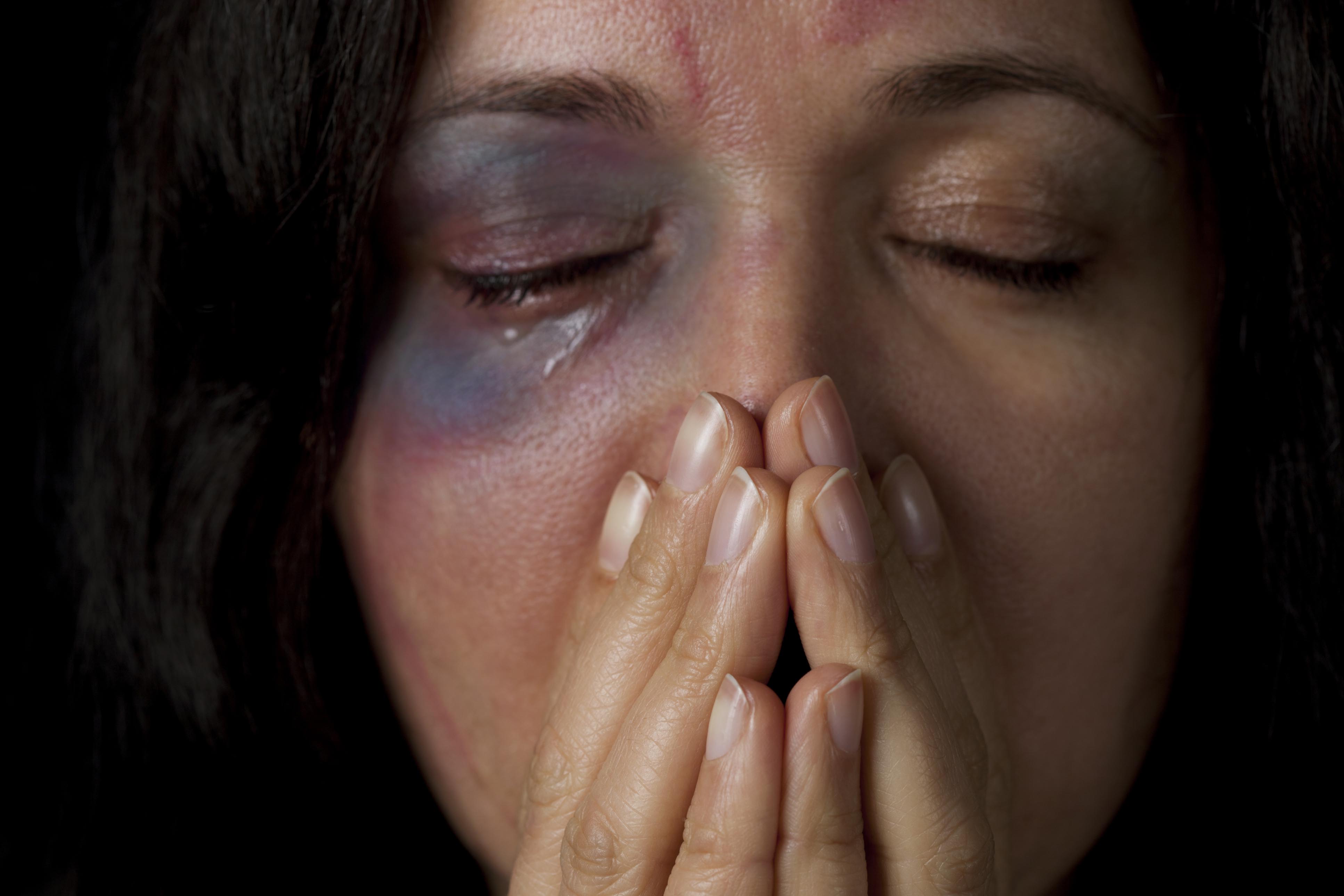
Our society is changing with the times slowly and surely as far as the laws and attitudes towards women’s rights and their safety and security are concerned. Then why the reluctance to criminalise marital rape?
Rape is rape. The trauma, horror, humiliation, the physical and emotional scarring is no less if the rapist is the husband. In fact it is more, because of the sense of betrayal. Sadly, in this day and age, when women are making great strides in many spheres in India, many are subjected to domestic abuse and a silent majority to sexual abuse by their spouse. According to the latest National Family Health Survey (NFHS-5) nearly one in three Indian women (32%) in the age group of 18-49 has suffered some form of spousal abuse; and around 6% have suffered sexual violence. Among ever-married women of age 18-49 who have ever experienced sexual violence, 83% reported their current husband and 13% their former spouse as the offender.
That is why there is a crying need to criminalise marital rape. And that is why there was an outcry and outpouring of frustration and disappointment from many women’s associations and right thinking men when on May 11, the Delhi High Court delivered a split verdict on the issue of criminalisation of marital rape; with one of the judges favouring striking down the provision and the other holding it was not unconstitutional.
For those who tuned in late into this great Indian debate on marital rape, the case is in court because under the exception given in Section 375 of the IPC, sexual intercourse or sexual acts by a man with his spouse, if the wife is not a minor, is not rape, even if it is against her will. The May 11 verdict came on PILs wherein the petitioners challenged the constitutionality of marital rape exception under Section 375 on the ground that it discriminated against married women who are sexually assaulted by their husbands. The petitioners want the unconstitutional exception to marital rape struck down because it violates a married woman’s right to equality, right to life with dignity and the right to self-expression, all of which are guaranteed under the Constitution. They point out that this provision also creates an anomaly, where beating or killing one’s wife is criminal but not raping her. Removing the exception would remove the protection married men have from being prosecuted for rape, and in doing so, restore a modicum of respect, equality and decency in our marriages.
The lawyers fighting for criminalisation of marital rape argue, and rightly so, that it is an archaic law enacted in 1860 by the British and is based on outdated concepts like the “doctrine of covertures” which means that “the very being or legal existence of the woman is suspended during the marriage.” It is based on the misogynistic thinking voiced by a British court in 1707 that “in return for support and protection, the wife owed her husband a consortium of legal obligations, which included sexual intercourse.”
The thinking over the centuries seems to have changed little in the matter; else the matter would not be court today.
The reluctance of the powers that be, to change status quo and deal with such a delicate yet fundamental issue in a family-centric society like ours can be seen by the fact that in its 2017 affidavit, the Centre had opposed the pleas, saying that marital rape cannot be made a criminal offence as it could become a phenomenon that may destabilise the institution of marriage and an easy tool for harassing husbands!! Then in January this year, the Government told the court that it was “re-looking” at its earlier stand and in February, the Centre urged the court to grant more time to enable it to state its stand on the issue after a consultative process. However, the Bench turned down the request on the ground that it was not possible to defer an ongoing matter endlessly. Then on May 11, after the split verdict, the Division Bench granted leave to the parties to file an appeal before the Supreme Court.
Given that the Government did not balk at criminalising the age-old practice of Triple Talaq that was a tool for subjugating Muslim women and has been banned by most Islamic nations, it is surprising that it is treading so slowly and cautiously on this very vital issue that affects nearly 48.04 per cent of the population of the country, i.e. its women.
I’m not saying that all married women in India have been subjected to violence or rape by their husbands but the percentage of Intimate Partner Violence (IPV) which includes sexual violence in the nation is quite high. An analysis of the unit-level data of the 2015-2016 NFHS data done by the online publication Mint throws up some shocking numbers. According to it, “an estimated 99.1 per cent of sexual violence cases are not reported, and in most such instances, the perpetrator is the husband of the victim. The average Indian woman is 17 times more likely to face sexual violence from her husband than from others.”
Given the fact that the numbers are speaking for themselves, even if the women aren’t, it’s time that Indian women are given protection from IPV, because the woman has to live with her tormentor and be subjected to sexual violence for the rest of her life, until she either dies or gets a divorce.
Because, make no mistake about it, a man who does not respect his wife’s right to say “no” and thinks that once married then it means that she has given conjugal consent for life, will not just force himself on his spouse once, it will be a repeated phenomenon. There might be some who will apologise to the wife after the dastardly deed is done and there will be others who will show no remorse, but once the nightmare begins, it will recur.
It’s not for nothing that marital rape has been criminalized by a 100 countries, including Britain itself, in 1991. That is why, when a progressive country like ours hems and haws about criminalising marital rape it makes one wonder about what is going on in the boudoirs of “respectably married” people in the nation. Many habitual India-baiters may balk at the fact that I have called India a progressive country where women are concerned, but before I go any further let me remind my discerning readers that we are the country where a woman became the Prime Minister in 1966, a President in 2007 and our first woman Chief Minister came to power as early as 1963. How many so called “developed” nations can equal our record? Even the big daddy of them all, the US, does not have a woman President as yet.
Also, take a look at the women-centric legislations, legal reforms and court rulings in the last decade in India. The Maternity Benefit Act, 1961 (“Maternity Act”) was amended to extend paid maternity leave for women employees from the previous 12 weeks to 26 weeks. Not just this, the amendment catered to adoptive and surrogate mothers as well, allowing 12 weeks of maternity leave, among other benefits. Not bad for a country steeped in tradition, is it?
Then there was a 2018 ruling by the Supreme Court which struck down a rule that disallowed girls and women in the 10-50 age group from entering the Sabarimala temple in Kerala. Sadly, later the top court again took up the matter for review and hence the ban on women in the 10-50 age group is still continuing, but at least, the highest court in the land did acknowledge that the temple rule violated women’s right to equality and right to worship. It was a step in the right direction, even if it was stymied later.
Also, in another highly–progressive move for a conservative society like ours, the Supreme Court of India has given its stamp of approval to live-in relationships and held that if a man and woman have been living together for a long period of time, they would be considered as married and will enjoy all rights. Plus the children born to live-in partners are treated as legitimate.
So, our society is changing with the times slowly and surely as far as the laws and attitudes towards women’s rights and their safety and security are concerned. Then why the reluctance to criminalise marital rape? Just so the “institution of marriage doesn’t get destabalised” is it fair that millions of women should be forced to lead a life full of fear, torture, terror and indignity? If the foundation of the Indian system of marriage is based on such a hellish existence for women, then it is better that the institution should fall. And, what is wrong with the menfolk in our country? We are the land that gave the world the Kamasutra, yet, men in modern India don’t know the art of romance and seduction. Shockingly, a 2018 survey of more than 160,000 households revealed that 93 per cent were arranged marriages and just three per cent had a “love marriage.” Go figure! As compared to the West, where the men have to work and compete hard to gain the attention of a woman, let alone marry her, Indian men have it so easy.
So, if you have a great relationship where you have happiness and peace and the only place you face problems is in the boudoir, then work on it. Try and find out what’s causing the lack of spark. If all efforts to arouse her interest fail, then go for marriage counseling or see a sexologist. Also, most people, especially men have the tendency to let themselves go, after marriage. Why? Are their wives not worth the effort for them? If wives can work hard to look good, why not men? Who gave them the right to let themselves go and then expect the wife to still find them attractive? And if the romance has truly died in your marriage and if she says “no” then learn to respect her feelings and learn to live with it. But rape is certainly not the answer. And if all efforts to woo her fail, make a fresh start in life.
Hopefully, once the case lands in the Supreme Court, something good will come out of it and millions of bruised, battered, abused and terrified wives in the country will be given protection and their dignity back by the highest court in the land.
But, the court and the Government together will have to do a tightrope walk to ensure that men too don’t end up becoming victims of vindictive women who think nothing of using a law that has been made for the good of a suffering majority, in order to serve their own petty purposes, à la the anti-dowry Act and the much-abused #MeToo movement.
Lastly, given the number of women in position of power and privilege in the country, it is surprising that it is taking us so long to criminalise marital rape. Because these women can use their position to raise awareness and their voices for their unfortunate sisters who are not in a position to protect themselves! They should and they must. And if the men of the country join this cause, then perhaps we can say that the Indian male has come of age at last!













